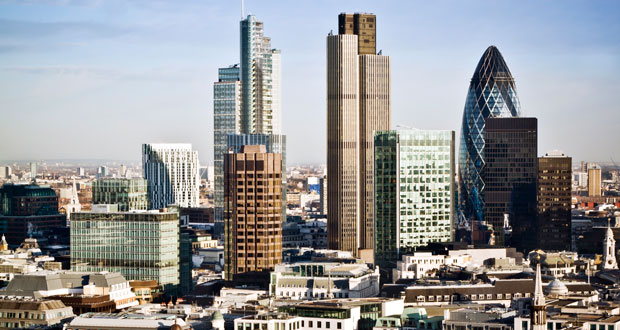According to new research, the majority (58 per cent) of built environment professionals believe the sector is already doing enough to tackle its carbon impact.
This is despite the fact that the built environment contributes 36 per cent of total global energy-related CO2 emissions, with the most recent available data showing that CO2 from operational energy use of buildings reached its highest level yet in 2019.
For its City of Tomorrow report, building performance analyst IES spoke to a wide range of professionals working in the built environment sector about the current status of sustainability methods and targets, including engineers, facilities managers, contractors, developers, planners and architects.
The report revealed that only 29 per cent of those working in the sector felt that it should be doing more to reduce its carbon impact, and 13 per cent were unsure if current efforts would be enough.
The research suggests that this complacency could stem from a lack of awareness around the full extent of the built environment’s carbon contributions.
It’s been demonstrated that the built environment contributes almost 40 per cent of the UK’s total carbon footprint, yet when asked to estimate this figure, 80 per cent of those surveyed answered incorrectly, with 45 per cent underestimating the total percentage. Six per cent guessed as low as between 1-10 per cent.
When asked which aspect of the sector they believe is the place where most sustainability gains can be made, 51 per cent of those surveyed said construction. However, only 22 per cent said operation/energy use, and just 4 per cent said materials development.
Don McLean, CEO of IES, commented: “While it’s great that awareness of climate issues in general is now pretty widespread, and 79 per cent of organisations in the built environment sector are actively working towards net zero, it’s clear that more needs to be done to communicate the built environment’s role in carbon emissions to those working in the sector.
“In particular, we really need to raise awareness of the environmental impact of buildings’ operational energy use, with the available data showing that emissions from building operations are still a huge problem, that efforts up till now have failed to tackle effectively.
“Reducing the emissions created during the construction process is of course essential, however considering that 80 per cent of the buildings that will be around in 2050 are built already, optimising the operational efficiency of those already in existence is just as, if not more important.”
Recruiting for soft FM services is proving more difficult in the post-Covid workplace. So, what can FMs do to overcome this?
Sara Bean, Editor of FMJ, and Jess Pritchard, Head of Corporate Sector at Moneypenny are joined by panellists:
- Mark Whittaker, General Manager, Thomson FM & Chair of IWFM
- Ian Wright, Soft Services Manager, University College London
- David Bauld, Group Facilities Manager, Paradigm Housing
- Nicola Lathbury, Managing Director, Hexagon FM
Together they will discuss the current skills shortage in a number of FM areas, ways to keep staff engaged in their job through brilliant culture, and how outsourcing could be a solution to the recruitment issue. Secure your place now for Thursday, 25th November at 11am.
To register click here.





